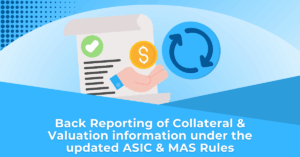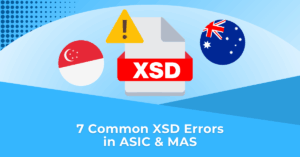ASIC Trade Reporting Simplified
Australian Securities and Investments Commission
Australian entities dealing in OTC derivatives are required to report transactions to an Australian Derivatives Trade Repository (ADTR) licensed by the Australian Securities and Investments Commission (ASIC). Under ASIC Derivative Transaction Rules (Reporting) 2024 (the ASIC Rules), (updated and effective as of 21 October 2024), Australian issuers of OTC derivatives need to report their reportable transactions. The ASIC Trade Reporting Rules and Regulatory Guide 251 provide a framework for the regulation of OTC derivatives reporting.
What is the reporting obligation and who is required to report?
Reporting entities (often holders of an Australian Financial Services Licence (AFSL), but others are captured including overseas firms) are required to do the following in respect of OTC derivatives:
- report all trades;
- report open positions on a T + 2 basis (note this was previously T + 1 under the former ASIC Rules); and
- submit any modifications to a licensed authorised derivative trade repository (ADTR), being any of the 2 trade repositories that have been licensed to operate in Australia.
What to report and to whom?
ASIC’s Rules outline a common set of data fields and specific fields relation to specific asset classes including:
- credit derivatives;
- commodity derivatives (other than electricity derivatives);
- interest rate derivatives;
- foreign exchange derivatives; and
equity derivatives.
Broadly, the following information is to be reported for all reportable positions:
- the economic terms of the position;
- the product and entity identifiers;
- information on whether the position is centrally cleared;
- valuation (mark-to-market, mark-to-model or other
- valuation); and
- collateral information
to a licensed ADTR, on a daily basis.
Extra-territorial obligations
MiFIR Reporting in Europe (EU) and the United Kingdom (UK)
Australian firms are brought into the ambit of MiFIR where a branch or subsidiary is incorporated in the EU and/or UK, and financial instruments are traded on an EU/UK trading venue or where the firm interacts in certain ways with EU/UK entities. For more information, visit our MiFIR page.
Pricing Packages
How much does it cost?
We charge a combination of an account management fee and a cost per transaction/position. Contact us for a quote, or view our pricing page for more information.
ASIC Reporting Retail Brokers
Monthly Account Fee^
-
$0 Initial set up cost
-
From $0.02 Open positions
ASIC Reporting Delegated
Monthly Account Fee^
-
$0 Initial set up cost
-
From $2.25 Open positions
-
Add-on Fees (optional)
Further information
Reporting entities need to consider their obligations and put procedures in place which promote compliance with the ASIC Derivative Transaction Rules (Reporting) 2024. Find out more about what needs to be reported.
Under the Regulatory Guide (RG) 251, firms reporting OTC derivatives are required to make regular enquiries with their reporting delegate to ensure that the delegate continues to meet its obligations to report your trades (ASIC Reporting Rule 2.2.7).
You also need to take all reasonable steps to ensure the completeness, accuracy and currency of the information reported. (ASIC Reporting Rule 2.2.6). Read more about what is required.
ASIC currently requires OTC derivative transactions on CFDs, margin FX and equity derivatives to be reported using the ‘lifecycle’ method.
As of 21 October 2024, this has been expanded even further to nearly all OTC derivatives. Read more about the requirements.
The regime requires both parties to a derivative transaction to report to a licensed Australian Derivative Trade Repository (ADTR). However, there is relief from this principle allowing single-sided reporting, i.e. where only one party is required to report. Read more for further details on single-sided reporting.
Firms can delegate their reporting under ASIC. Previous safe harbour provisions have now been removed from the ASIC rules. This means that firms need to implement greater monitoring and reconciliations of their trade reporting conducted by a third party.
For those firms delegating their reporting, we encourage you to build an understanding of how to conduct regular reconciliations and monitoring. TRAction have compiled resources for both clients and non-clients to assist with this process.. Read more.
TRAction has identified common mistakes in ASIC trade reporting data. Ensuring completeness and accuracy is important and hence you should take time to review your reporting process against the list below:
- Reporting all trading platforms and systems
- Full visibility of your reportable trade accounts (only applicable to clients using MT4 API, MT4 & MT5 linked servers)
- Addition of Symbols
- Missing or wrong identifier of Non-Reporting Counterparty
- Wrong notional amount
- Incorrect Datetime/Timestamp format
- UTI/USI format in csv file
- Not informing your reporting delegate of any addition/removal of liquidity providers
- Incorrectly rely on single sided relief
For TRAction’s guidance on how to prevent or rectify the above errors read more.
ASIC Rewrite and MAS Rewrite both introduced a major structural change with the move from the CSV to XML file structure.
XML uses an embedded schema and validation system using XSD files. Essentially, when creating an XML file, it is checked against a set of formatting and data rules in the XSD file. If your XML file does not meet those rules, an error will appear.
See our detailed article for a list of the most common errors we see and their causes:
Are you aware of the penalties for non-compliance within ASIC trade reporting rules? To find out about what you can be fined for and how to avoid these read more.
It’s a fair concern and it’s a question we’ve been asked by a few brokers, so we’ve taken the time to answer the questions fully and share with the industry as a whole. In the case that the client is an individual, the ASIC Rules require a unique ID and the client’s legal name. No phone numbers, emails or address are required in the reports. Read more about what data needs to be provided.
Is the trust or trustee required to obtain a Legal Entity Identifier (“LEI”) under ASIC OTC derivative reporting? As an Australian reporting entity, if your non-individual clients do not have an LEI, you cannot allow them to enter into an OTC derivatives transaction with you. Read more here.
Australian Carbon Credit Units (ACCUs) and certain other emissions units are considered ‘financial products’ in Australia. However, they are not reportable under the ASIC Derivative Transaction Rules (Reporting) 2024 since in their direct form, they are not an ‘over-the-counter (OTC) derivative’. Where an ACCU is the underlier of an OTC derivative however, i.e. there is a derivative over an ACCU, then it may be reportable. Click here to read more.
There are certain fields within the regimes of EMIR, MiFIR, SFTR, ASIC, MAS and Canada, which require populating with an LEI.
Check out our article, where we detail regimes and LEI fields for population and validation.
Stay in the know
Sign up to TRAction's newsletter
ASIC Rewrite
video
ASIC Rewrite: Top 8 Changes You Need to Implement
The new OTC derivative trade reporting rules commenced on 21 October 2024. These are major changes to the rule which make staying compliant with these obligations significantly more difficult.
Learn more about these important changes that your firm needs to implement, with the key points covered in our helpful video.
Regulatory Resources
- ASIC Derivative Transaction Rules (Reporting) 2024
- ASIC’s Dedicated Webpage for 2024 Rules
- Comparison of Reporting Rules – 2022 v 2024
- ISO20022 Message Sets – Financial Instruments and Transactions Regulatory Reporting (Trade Repository Reporting)
- RG 251 Derivative Transaction Reporting
- Consultation Paper 361 Proposed changes to simplify the ASIC Derivative Transaction Rules (Reporting): Second consultation (CP 361)
- Consultation Paper 334 Proposed changes to simplify the ASIC Derivative Transaction Rules (Reporting): First consultation (CP 334)
- Report 755 Proposed changes to simplify the ASIC Derivative Transaction Rules (Reporting): Second consultation (REP 755)
- ASIC Corporations (Amendment) Instrument 2023/504
- ISO 23897:2020 Financial Services Unique Transaction Identifier (UTI)
- ISO 4914:2021 Financial Services Unique Product Identifier (UPI)
ASIC Rewrite FAQs
After multiple consultation papers over more than two years, ASIC has released their final packages of updated Derivatives Transaction Rules. The rules are being harmonised to global standards.
The first set of updates to the ASIC Derivative Transaction Rules (Reporting) 2024 (2024 Rules) took effect on 21 October 2024. Further changes start on 20 October 2025.
Yes. There are a number of new fields including UPI and UTI.
Australia’s reporting regime requires both parties to a derivative transaction to report to an Australian Derivative Trade Repository (ADTR). However there is a relief from this principle allowing single-sided reporting, i.e. where only one party is required to report under the ASIC Derivative Transaction Rules (Reporting) 2024.
ASIC has made changes to the single-sided relief provisions under the 2024 Rules which commenced from 20 October 2024. Read more about the current single-sided reporting provisions and how they are changing in 2025 here.
Until the commencement of the new ASIC trade reporting rules on 21 October 2024, a reporting entity received a safe harbour benefit when it appoints one or more persons (each a delegate) to report OTC derivatives on its behalf. Since ASIC Rewrite commenced, this is no longer be available. We encourage firms to review any delegated arrangements they have in place and ensure proper monitoring and reconciliation is being performed.
Contact us
Can't find the answers you're looking for?



